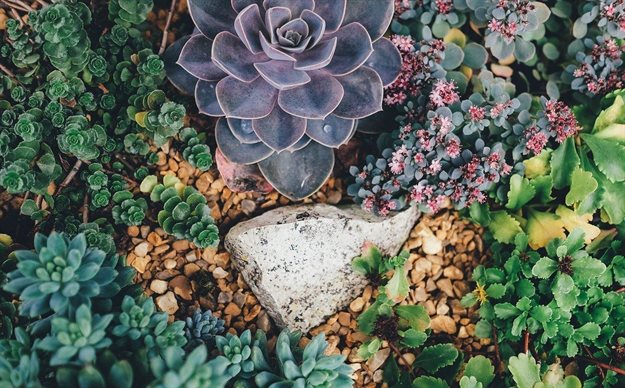
Top stories



ESG & Sustainability#BudgetSpeech2026: SRD grant unchanged, other Sassa social grants see hike
1 hour



More news





ESG & Sustainability
South Africa’s carbon tax should stay: climate scientists explain why















Increasingly, buyers are looking for homes with greening and sustainable living features. While there is an element of cost saving, people are also increasingly becoming aware of their impact on the environment. Many new developments and homes are now adding greening features ranging from energy-efficient lighting to solar heating and more.
If you have not yet considered introducing green features into your home, now is the time to start. It is not just about reducing your carbon footprint but given the realities of energy and water supply in the country, these are now not just a good investment, but buyers are likely to be swayed by these added features.
Solar heating: This will not just save on electricity costs and power your hot water needs, but can power your home, including the security system, vital during power outages when homes and neighbourhoods become vulnerable.
Inverter system: An inverter system is a worthwhile investment that can operate your security system, internet and television and allow you to still charge your phone during power outages. It is also possible to install a system that is integrated with your current electricity system for a seamless switch-over during an outage, ensuring continued security, power for vital lights, appliances and so on.
Energy-efficient lighting: It has become vital that homes replace their old lighting systems with energy-efficient lighting. To ensure you are not left in total darkness during power outages, you can consider rechargeable LED lights or those which can be plugged in at various spots around the home. They charge when the electricity is on and will then come on automatically when the power is out.
Gas versus electrical cooking: Gas-powered cooking appliances will ensure that you are able to cook during power outages and is now almost a necessity. Indoor braais and wood-burning fireplaces are also highly sought-after among home buyers.
Borehole or well point: Many areas offer the opportunity to install a borehole or well point. These are always prized by buyers, especially for larger properties with expansive gardens to maintain.
Rainwater storage tank/s: Another must-have is a rainwater storage tank and grey-water system to provide for garden and outdoor water needs. A more sophisticated system for indoor non-potable needs, such as toilets, will certainly add further value to the property.

Indigenous and water-wise gardens: By planting and cultivating an indigenous garden, you will not only have a thriving garden since the soil conditions should be suitable, but will also reduce watering needs. A water-wise irrigation system should also be installed to ensure that there is no water wastage. Be sure to also remove alien invasive species from your garden as they tend absorb too much water, among others.
Planting more trees: Planting more trees is vital to greening your environment and reducing your carbon footprint. Trees certainly add to the aesthetic appeal of your garden and property. Municipalities such as the City of Cape Town are actively encouraging residents to plant more trees to contribute to greening the city. Spekboom is, for example, regarded as an excellent tree to reduce your carbon footprint.
Sustainable materials: Aside from focusing on using natural materials when building, such as wood and stone, you should also focus on sustainability and biodegradability in the home. Reducing the use of single-use plastics is one way to do this.
Reduce wastage: Another important aspect to sustainable living is to consciously reduce wastage, especially insofar as shopping bags and packaging is concerned. Where possible make use of reusable carrier bags. Consider adding a vegetable and herb garden to add more value to your property for buyers.
Recycling bins: Many neighbourhoods now offer recycling collection services or have recycling drop-off points. You could, therefore, incorporate your own recycling bin system with separate storage of recyclable items such as glass, plastic and paper. You could also consider installing your own compost system for food wastage.
Finally, homeowners must check whether there are any local by-laws and legal compliance necessary before installing certain features such as boreholes and solar panels and be sure to comply with these.